This article was written by members of the Team in response to the arbitrary arrest of the dual nationality journalist Gonzalo Lira in Kharkov, Ukraine. One of our Team members has written directly to the Embassy of The United States of America in South Africa to ask whether Lira has been represented by the US Government in Ukraine since he is a citizen and if not, why? We will publish the letter as well. Since he is also of Chilean nationality, a further question hangs. This blatant abuse of one of the most fundamental Human Rights cannot be allowed to be both un and under reported as like Julian Assange and so many vocal dissenters from the accepted narrative, he’s being silenced.
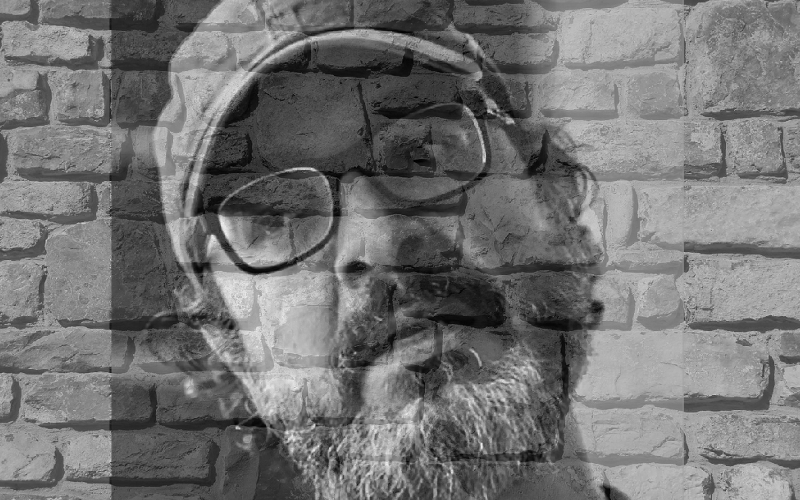
On the 20th of January of this year, I wrote a massive analysis of a debate that Gonzalo Lira hosted on his podcast ‘The Roundtable’. This analysis was eminently critical against the way Lira a seasoned Youtuber handled the participants and himself during the conversation. But firstly why should someone even bother to write eight thousand words plus on a Youtuber having only 115,000 subscribers on YouTube? Certainly not a heavy weight if we speak about the specifications defining a successful social media influencer today. But in these schizophrenic days where a Cold War 2.0 growing blizzard is falling on us, the subscriber’s count of a Youtuber advocating a narrative contrary to main stream media is as good as the official GDP of the major economies, in other words complete balderdash. Gonzalo Lira is certainly a heavy weight among the last true journalists who are holding ground in a baroud d’honneur against main stream media and their dangerous narratives. Gonzalo definitively counts among those engaging in a valiant fight despite facing overwhelming odds. So, am I jumping on the Band Wagon after having lashed so heavily on the man some few months ago for his performance? First and foremost I also wrote in my description of Gonzalo that he is a colorful character who defends his convictions with passion and when Lira recognizes he was wrong, he tends to rectify the mistakes on a following podcast. Asking myself if the arrogant attitude of Gonzalo by residing in the city of Kharkov was an act of foolishness or one of courage, I left the readers to ponder that question. Secondly and more importantly, sadly though, there is no Band Wagon to jump in.
Unfortunately for Gonzalo Lira, there is no outcry from the gross majority of his colleagues, be they Journalists and Podcasters all around the world and this situation dramatically plays in the hands of those who are now keeping him in detention. On this day (30/05/2023) the YouTube page of Gonzalo does not show any new posts and the three last podcasts were made in collaboration with other heavyweights like ) Alexander Mercouris, Brian Berletic and Mark Sleboda who count among those who spearheaded this ‘New Guard’ offensive against the dictates of Main Stream media. All these people quoted have been vocal to obtain both information on the fate of Gonzalo as well as to ensure that his rights as a foreign citizen residing in the city of Kharkov Ukraine are respected. But today, while Gonzalo has joined the unenviable martyrdom of Julian Assange, he deserves for his sheer courage an outcry as wide as the latter and that whatever our opinion might be of him. I am among many quite often in disagreement with what Gonzalo says but as Brian Berlectic aptly put it, on Ukraine the man is dead right! All newspaper men, reporters, bloggers, friends or even adversaries of Gonzalo should vehemently ask for his freedom as we should all remember these words attributed to Voltaire as one of the main motto's of real Journalism. “I totally disagree with what you say but I will defend to the death your right to say it” *(Sentence attributed to Voltaire but originally coined by English author Evelyn Beatrice Hall in 1906) Some people dislike Gonzalo for many reasons and paradoxically one of these reasons is that many among us envy him and would have dreamed to have the kind of courage this man has. Because if we admire the excellency of the geopolitical analysis of Alexander Mercouris*, if we are thankful to Brian Berletic* for his military breakdowns which are done with accuracy and if it is always refreshing for us to see Alex Christoforou* wrapping all that folly with his natural wit and humor, then however none of them does that from the Lion’s den…, In Mordor itself!
Unsurprisingly it was the Oracle of London, Alexander Mercouris, that recently dropped some hints that may help us to connect the dots. On his channel, Mercouris compared the arrest of Lira to the detention of the American Journalist Evan Gershkovich by the FSB in Russia, though the two affairs differ grandly. If Gershkovich is only a Journalist, just a bit too zealous and curious, then we agree with Mercouris that he should be deported here ending the problem. However after the wave of sanctions, discrimination, arrests and the hassle of ordinary Russian citizens in a rampant atmosphere of Russophobia, the United States in a wave of revisited ‘McCarthyism’ has triggered a new Spy War which comes with its intrigues and exchanges of prisoners on a suspicious bridge on a cold winter morning. It is very possible that Ukraine, always eager to please their US masters, have engineered a new James Bond plot offering the head of Lira as an exchange pawn (Although one cannot figure what kind of diplomatic contortions would be needed for such a weird thing to happen,) And it may be not so far fetched when one thinks about it, the US having a lack of high profile Russian nationals in custody could well be tempted by such a proposition. One should also bear in mind that the Ukrainian government has consistently shown all along the conflict, its willing to adopt an out of the box ‘Hollywoodian’ scenario to gain leverage or for a sheer public relations stunt. After all not so long ago, Margarita Simoyan the head of RT(Russian Television), made such a proposition whereupon Julian Assange could be exchanged for high profile detainees like Paul Whelan and Evan Gershkovich.
Whatever is behind the reasoning of the Ukrainian Authorities it still remains a fact that Gonzalo Lira is also a US citizen and as such he is entitled the same protection and rights as people like Whelan or Gershkovich. For all of us who reach our audience with our pen or the audio visual medium, let’s seize our best weapon, write and post until Gonzalo is finally free. Some may say that Gonzalo set himself up, such a fool. But you have to agree, such a magnificent fool! I ended the analysis of the debate of Gonzalo by the following words that I see apt to reproduce here too as they did express at this moment in time both my annoyance and admiration for the man,
…So let’s hope that Gonzalo gets rapidly over this ‘Faux Pas ‘ and does what he does the best, delivering excellent shows and standing like a chain smoking stonewall in the middle of Kharkov, facing the grotesque aberration which now governs Ukraine.
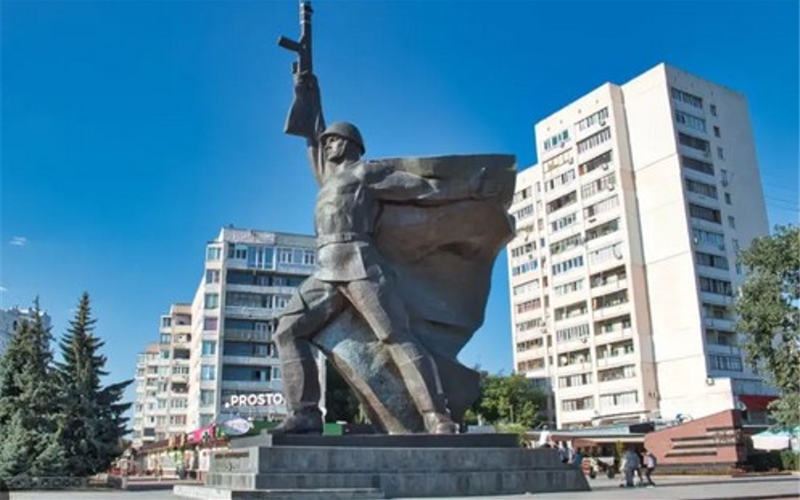
Most people quote the fact that Gonzalo Lira lives and operates in the city of Kharkov and from there conclude that he is surrounded by enmity. Last year the most overrated Ukrainian offensive brought to attention the Kharkov region, which covers a wider area well outside the limits of the city. As a matter of a fact the city of Kharkov found in the North Eastern part of Ukraine is the administrative center of Kharkov Oblast (Province). Anyone able to read a map can see that the Kharkov Oblast is close to Mainland Russia to which it is directly connected to the north and in the east, the province borders the Luhansk Oblast while the Donetsk Oblast neighbors the Kharkov one to the south east. (The Donetsk and Luhansk provinces asked for their autonomy in the wake of the coup that ousted the elected government of Victor Yanuchovich. They were met with extreme military force by the newly established Kiev authorities. Since 2014 until last year when they were both incorporated in the Russian Federation, they were engaging the Ukrainian regular forces under the colors of the DPR and LPR (Luhansk People’s Republic and the Donetsk People’s Republic).
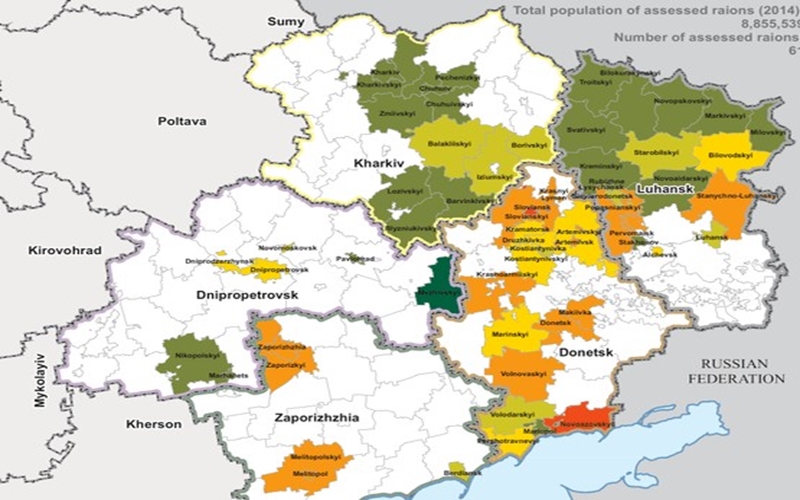
The city of Kharkov administrates the so called Kharkov Region which is nothing less than a district which at the last census before the start of the hostilities counted some 1.8 million inhabitants (2.2 M according to other sources). Obviously the city is more than an important agglomeration; it has an historical importance and a glorious past and is a major industrial center. If anyone reads the article dedicated to the city in Wikipedia, the general impression is that the gross majority of the city is supportive of the Kiev’s policies even quoting polls held from September to December 2014 whose results are supposed to show that the population did not want to leave Ukraine to join Russia. The reality is in fact of a totally different nature. Curiously the article of Wikipedia never even once specifies that Kharkov is prominently a city with a large majority of people of Russian ethnicity. They do however state that in 1919, the city had a population whose majority was of Ukrainian Ethnicity, conveniently omitting to say that it was only a moment in time and that all during its history which stretches from 1654 when Kharkov was founded, the city remained mainly populated by people of Russian ethnicity and it is still so to this date.
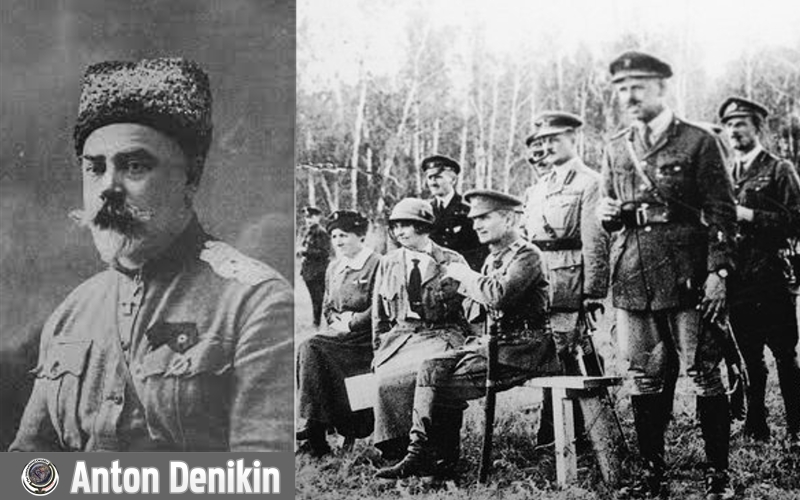
Politically, the city has in the past been the capital of the Ukraine under the Bolsheviks when they restored their authority in 1919 after wrestling the city from the anticommunist forces, ‘The White Movement’ of Anton Denikin known for his antisemitic pogroms and the White Terror during the Russian Civil war. Prior to that period, the city was according to the terms of the Treaty of Brest-Litovsk briefly put under the control of the German occupied Ukrainian State. Due to its proximity to the Russian border and its heavy industries, Kharkov was of prime strategic importance for the Soviet planners as well as a prime value target for Nazi Germany.
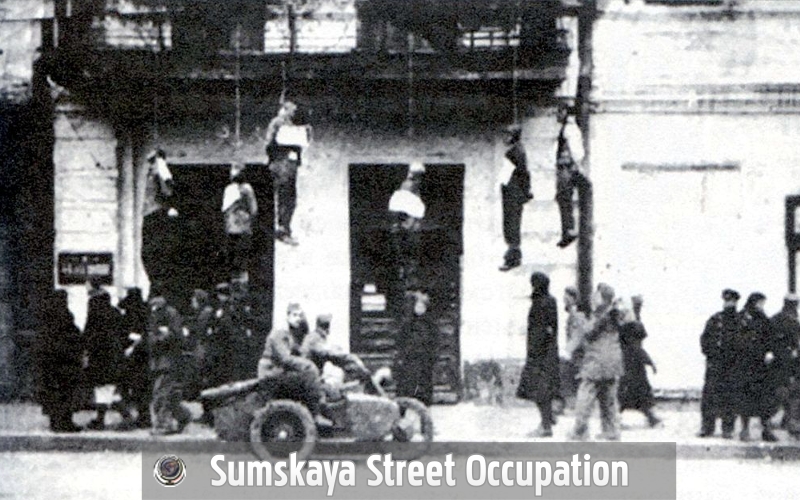
Despite the fact that they are not as famous as the battles fought in places like Kursk, Stalingrad or even the Siege of Leningrad, the battlefields of Kharkov count among the bloodiest of World War 2. There were four Battles for Kharkov during the second world conflict, the first engagement and also the shortest one was fought between the 20th and 24th of October 1941 at the end of the infamous Barbarossa campaign. Although it was a crushing victory for the German Sixth Army, the Russians had managed to remove all the main industrial plants before retreating.
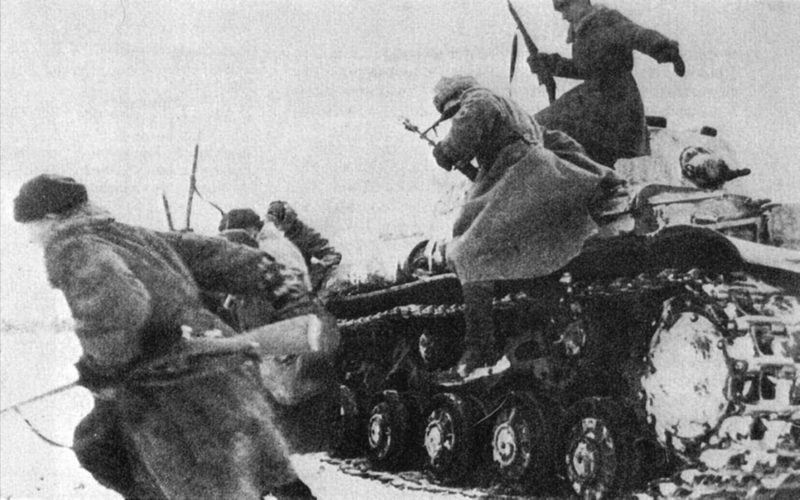
Boosted by the victory saving their capital city Moscow, the Russians recaptured Kharkov in a matter of two weeks in a battle fought between the 12th and the 28th of May 1942. A victory which came with an exorbitant price where the Red Army suffered 276,000 casualties among which 170,000 were killed. The city had by then the same eerie atmosphere comparable to the town of Bakhmut today, as it was utterly destroyed. But her martyrdom was not over as the Soviets would lose grip of the city once again the following year. When the third battle for Kharkov started on the 18th of February 1943, the Red Army had already taken the initiative on the eastern battlefields. However, against all odds and heavily outnumbered, the forces of Field Marshal Von Manstein literally wrestled in hand to hand urban fighting for the control of the city, which went to the Soviets in a battle which lasted until the 20th of March. The third battle of Kharkov will remain for those who understand the achievement a remarkable feat in the annals of German military history.
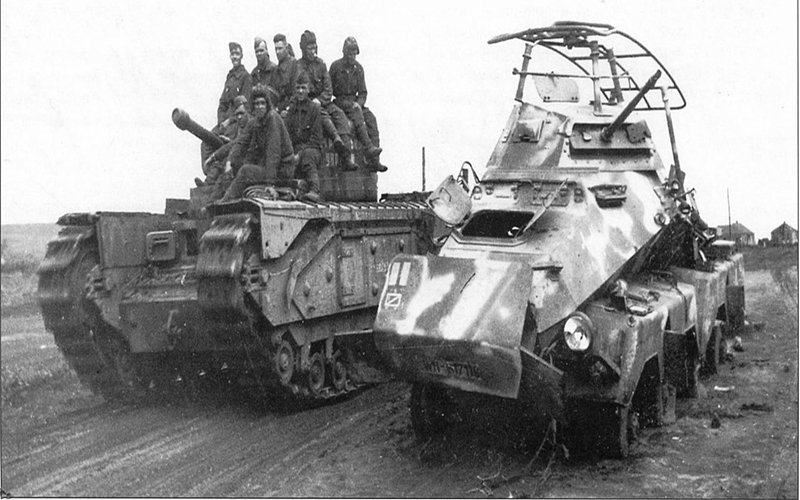
The red Army finally liberated what was left of the city in the fourth and last battle of Kharkov on the 23th of August 1943, after 20 days of a bitter fighting with the retreating forces of Von Manstein who still managed to kill 50,000 Russian soldiers while the German forces lost 9,000 men killed in the action.
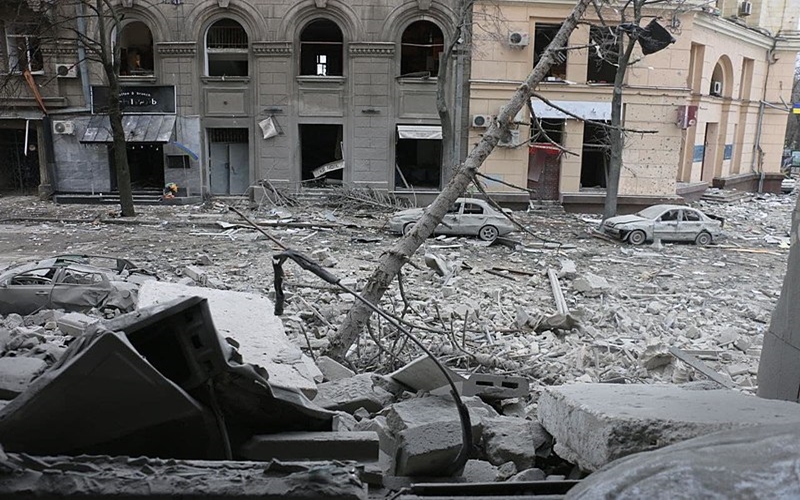
Mechanized warfare returned dramatically in the region in 2022 when as part of the Special Military Operation, Russian forces crossed the border from Belgorod. Rapidly, Russia occupied large portions (swathes) of the Kharkov Oblast with a reported incursion in the western part of the city itself by the 27th of February, 2022. One thing that is important to note is that despite what has been written in the western press, the advance from Belgorod was not the main push of the offensive and from the onset; the Russian forces never had the intention nor logistic capabilities to invade or occupy the city itself. This situation became evident during the following months while Russia camped on its positions on an overstretched front-line.
The Ukrainian high command with the help of intelligence provided by its western backers rapidly identified the weak points in the Russian defense lines and planned months in advance an offensive in the Kharkov Region which would be hailed as one of the greatest achievement of the Ukrainian military during this war, even being compared during the euphoria of victory to the battle of Saratoga. But was it so? Western military analysts would let you believe that Ukrainian propaganda successfully mystified the Russian high command to shift it’s focus on Kherson where the media predicted the area of the main Ukrainian thrust, but it seemed rapidly more probable for competent analysts that in fact Russia was left with a case of no ‘choice’. The Russian grouping holding the line in Kharkov were unprepared and outnumbered sometimes on a 1 to 9 ratio, the situation was hopeless except if the Russians were ready to commit important reserves. Otherwise, they would face the loss of their troops if they had been ordered to stand to Kharkov counter offensive.
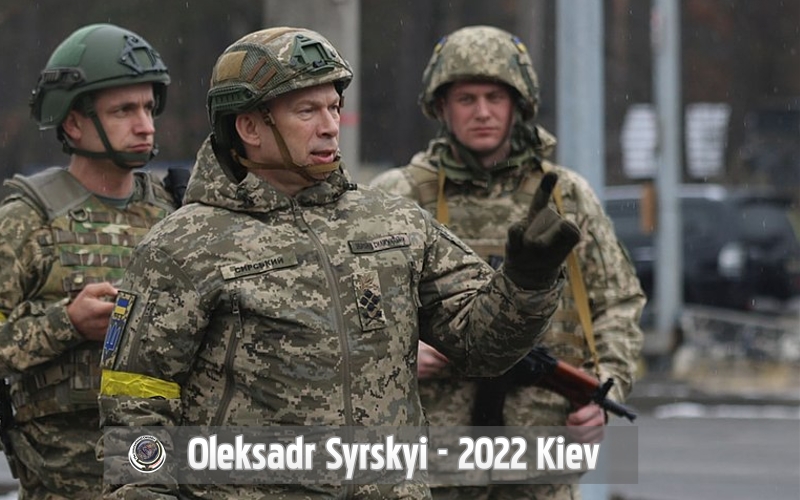
The Ukrainian General defending the Ukrainian Capital in the so called ‘Siege of Kiev’ in the early days of the Russian Military operation was Olesandr Syrski and was called in to take charge of the future operations in the Kharkov region. It is said that the offensive was the brainchild of this officer. Syrski launched his forces in an operation which lasted three weeks and five days concluding on the 2nd of October 2022. Without entering into the specifics of a battle which has abundantly been discussed and will be studied for long after the hostilities have ended, it suffices to look at the results. Was it a defeat from the Russian point of view? Undeniably it was one, in war when you lose a territory you were previously occupying, whether this loss occurs at the end of a battle or as the result of an orderly retreat, it is called a defeat. (Note: Holding the ground on the Russian side during the Ukrainian counter offensive of 2022 were soldiers of Donetsk and Luhansk, not regular Russian troops. A further note to add that many of these soldiers have been campaigning since 2014).
If the objectives of the offensives were to reoccupy all the lands that initially were won over the first months of the intervention in the region, then it was only a partly successful operation as Russian forces still occupied part of the region at the end of the campaign. But in a military point of view and with insight, it seems that the Kharkov counter offensive failed in two of its main aims which were encircling a vast amount of Russian troops thus bogging down Russian forces, which would have been committed to relieve the embattled troops, thus relieving the pressure on the Ukrainians on the other engagement theater of the conflict. Short of a defeat, the Russian did the worst thing conceivable to the Ukrainians, they simply refused to fight.
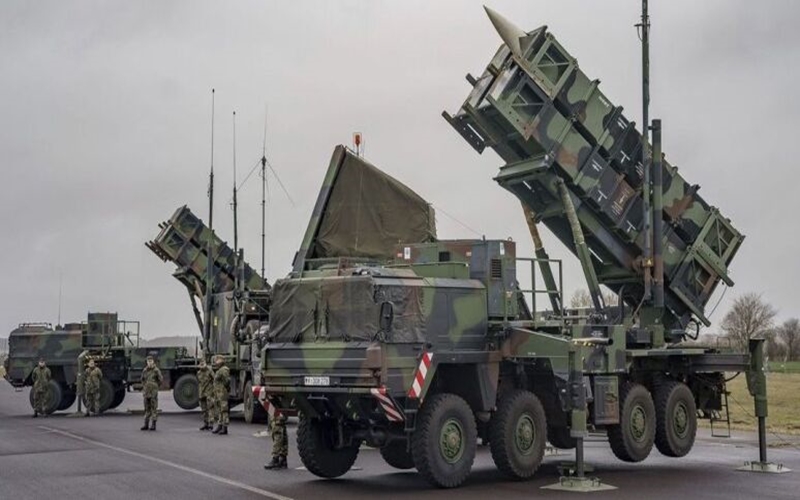
Today with another wonder weapon ‘The Patriot ‘ smashed and the loss of the city of Bakhmut, it seems that it is Ukraine who has exhausted her forces by pouring men and weapons for months in what will be known from now on as the ‘meat grinder’ of Bakhmut. It is unfortunately probable that there will be one more battle for Kharkov in the near future and we will come to that shortly.
One question which comes to mind when people are told that the population of Kharkov has strong pro Russian sympathies is if that is so, then why did the City not rebel against the authorities of Kiev in the wake of the events of the Maidan in 2014? Main Stream Media explained that the troubles in Kharkov were never a popular movement but events triggered by ‘Russian Tourists’ (Supposed agitators and trouble makers originating from mainland Russia). Main Stream Media also often explains that Kharkov is resolutely a region which wants to stay in Ukraine and that the people of the city are more attached to the city than to their Russian ethnicity or identity and have no desire to integrate with Russia and in that sense, it differs greatly from their neighbors in Luhansk and Donetsk.
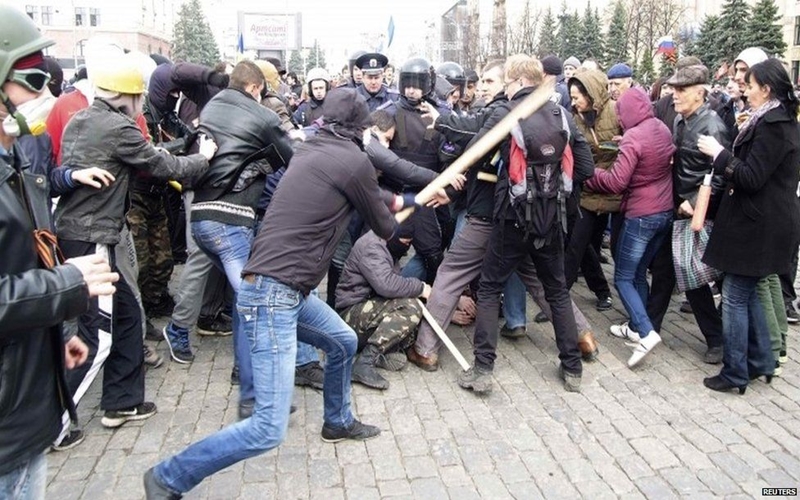
Kharkov did challenge the authorities of Kiev in 2014 and the city did not escape the wake of violence which spread over Ukraine during that period. The city itself did not take up arms against the Kiev regime however the early success of the Donetsk and the Luhansk Militia when they crushed the Ukrainian forces in 2014-2015 were also largely due to the inflation in the militia ranks from the defectors of the special forces and different military units who refused to recognize the authority of the new Kiev government and came to inflate the ranks of the rebellious republics. Firstly a point that has to be constantly clarified, the people of the Donbass have never asked or fought for independence from Ukraine or integration in Russia but for Autonomy and the respect of their Rights which were threatened by the Russophobic and racists laws of the Government of Kiev. Calling the people of the Donbass separatists is a misnomer and sheer western propaganda. President Vladimir Putin himself tried tirelessly to implement the Minsk Agreement which guarantees autonomy for the republics but not independence. In the city things turned rapidly sore in the winter of 2014 and on the 7th of April, protesters occupying the Kharkov Regional State Administration building proclaimed the Kharkiv People’s Republic, mirroring the Luhansk and Donetsk People’s Republic.
But the republic was a short lived one ending when the Ukrainian security forces from the city of Vinnytsia, loyal to the newly installed regime stormed the building on the same day. So what really did happen and how did the Ukrainians get hold on the city with apparently minimal difficulties.
Nowhere in Ukraine with the exception of the Donbas and may be Odessa, are the pro Russian feelings more intense than in Kharkov and as early as March 14th 2014, two anti Maidan protesters paid with their lives, their opposition to the new Kiev regime. The Kiev authorities used the SBU (Ukrainian Security Services)to repress most often violently, any opposition to the new Kiev regime and former veterans of the Azov battalion who has fought in the Donbass with members of the far right activists from the Patriot of Ukraine (whose founder was Andriy Biletsky 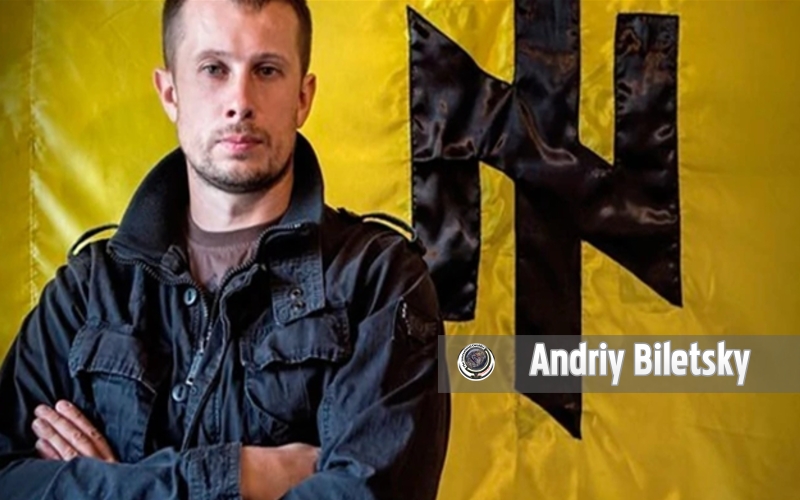 a former commander of the Neo Nazi battalion Azov)appeared on the streets. From the beginning, it was evident that the protesters were not organized and had not previously planned coordinated actions to take control of the key positions and political control of the city. It is however to be reckoned that the decisive factor that won Kharkov was a mistake done by Yanukovych years before the events when he chose Hennadiy Kernes, a member of his ‘Party of Region’ to become mayor of Kharkov.
a former commander of the Neo Nazi battalion Azov)appeared on the streets. From the beginning, it was evident that the protesters were not organized and had not previously planned coordinated actions to take control of the key positions and political control of the city. It is however to be reckoned that the decisive factor that won Kharkov was a mistake done by Yanukovych years before the events when he chose Hennadiy Kernes, a member of his ‘Party of Region’ to become mayor of Kharkov.
Kernes was a man of shifting allegiances and for the 15 odd years that he had been in politics many times changed political colors. Kernes was also known also to have a criminal past 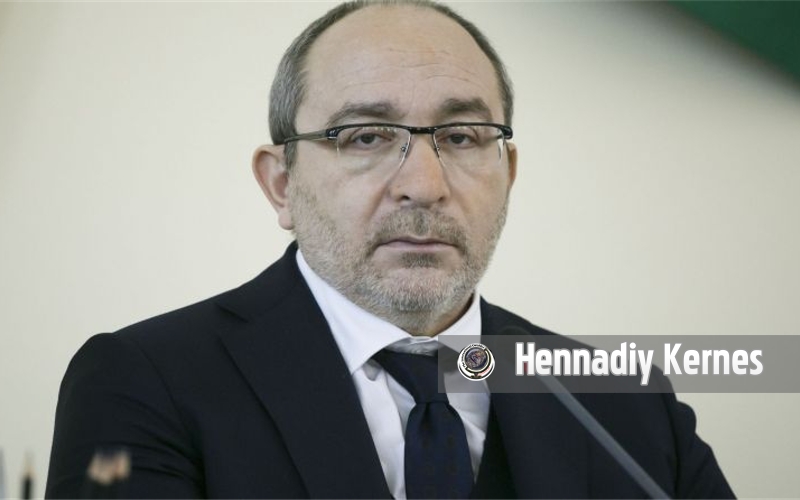 and had many assets in Kharkov that he feared to lose in case the protesters took over. Hennadiy Kernes felt the direction of the wind and swiftly shifted sides; he was seriously wounded in an assassination attempt a few weeks after his ‘change of mind’.
and had many assets in Kharkov that he feared to lose in case the protesters took over. Hennadiy Kernes felt the direction of the wind and swiftly shifted sides; he was seriously wounded in an assassination attempt a few weeks after his ‘change of mind’.
Since 2014, if your feelings are warm to Russia silence is ‘de riguer’. The SBU has used the repression machine of the government to crack down on activists and numerous Human Rights groups have reported grave human rights violations ranging from enforced disappearances, torture, ill treatments and arbitrary arrest. Naturally, Ukraine denies this and when Ukraine denies anything, it is sufficient for western powers to ignore the problem.
This is the town where Gonzalo Lira lives and works, a town where the overwhelming majority think along his lines concerning this fratricidal conflict but their approbation is a silent one. Recently, Alexander Mercouris was hoping for the deportation of Gonzalo which would de facto set the man free but Mercouris added that Gonzalo would not like to be deported because he loved the city so much. A love that we understand and that we at the International Outsider share with him for many different reasons. The Kharkov you have been reading about through these lines, is not the Kharkov that many of us know and love. Today the dark hand of repression and intolerance has a firm grip over Kharkov and in a most cynical move; the western powers are indulging Ukraine in forcing a town with a Russian soul to be Russophobic.
The future of Kharkov will largely depend on the outcome of future military operations. Would the announced Ukrainian Counter offensive succeed, the status of the city will probably remain unchanged but that is the less probable outcome. If the Ukrainian Counter Offensive does not achieve it’s objectives and the Russians are convinced to join the negotiating table, their conditions will be harsh and the City would be at best part of a larger demilitarized zone. If the Russian Army has to achieve victory by fighting its way through the central part of Ukraine, then it could be well that the future of Kharkov will be as part of the Russian Federation. One way or the other, Russia will not tolerate the question of Kharkov to be left open at a time that more and more rumors about a military operation from Ukraine deep into Russia with Kharkov as Launching point are resurfacing. (At the time of publishing this article a Ukrainian force of 550 men (the strength of a battalion) have attempted to invade and seize Russian Border Villages. This Ukrainian force equipped with western military equipment was destroyed with heavy casualties and the base of operations of the men who performed this operation was undeniably situated in the Kharkov region which invited Russian missile retaliation the following days and a renewal of the rumors of future heavy military actions in the region)
This article is because the journalist Gonzalo Lira was arrested in Kharkov and the overwhelming silence following this is unacceptable. He deserves the same legal respect as other journalists detained prompting one of the Team to have written to the United States Embassy to obtain information. Like Julian Assange, the International Outsider will not be silent on the issue of Freedom of Speech. We would like journalists to publicise his case and write to the authorities regarding his arrest and what happens next as this affects them professionally and personally. The public though not fully aware of it, are facing the same dilemma as well.
Gonzalo Lira has joined the ranks of the ‘silenced’ who are locked up and not allowed media access or means of communication with the world outside their enclosures. The Helsinki Times ran with ‘Detaining Gonzalo Lira : Another Blow to Freedom of Press in Ukraine’ while Sportskeeda.com ran the that arrest had gone viral and gave the purported reasons for his arrest. (Video has been removed)His fate however is likely to be among the worst given the nature of his captors and their past actions in similar circumstances. The reporting in the Ukrainian media where they accuse him of posing as a journalist and closely follow the official government line, only reinforces this. He was detained quite violently with what appears to be police (more likely the dreaded SBU) dressed and armed for a riot. Gonzalo is spectacled and tall, not the man who would either resist or be able to singlehandedly overcomes 2 trained police officers. He was arrested before in April 2022 and was out of touch with little information that was reliable about when he was coming out or official statements answering basic questions regarding his liberty. There were all the usual rumours at the time which were mostly unfounded including the ‘kidnap by the Azov Batallion’ one. He is for many people a difficult character with a decidedly ‘spikey’ side to his dealings with others but a clear view and opinions that are often very moral and often, he openly points the finger at those who are obviously in the wrong. He can be quite abrupt and off colour but is most often on point with a view that does not always accord with the national administration of the country he reporting about or those individuals he names. Add to this those who constantly refer to his colourful past (numerous labels are given to him, why it’s of interest is pure salaciousness since most of them are petty) and his openly pro Russia stance in the ongoing Ukraine and Russia Conflict. He was a brave man living in the very heart of those whose actions he decried, Ukraine ruled by the Kiev Government and whatever his motivation, he spoke the factual truth often and supplied data if possible. He resided in Kharkov and there are of course many speculations as to his affiliations and how he managed to do this. That apart, the matter rests with ‘yet another blow for press freedom’ as the Helsinki Times so aptly put it with his arrest and silencing.
What is not written does not exist.
© The International OutsiderC0.Reg.No SC715702 . All Rights Reserved. Design by HTML Codex